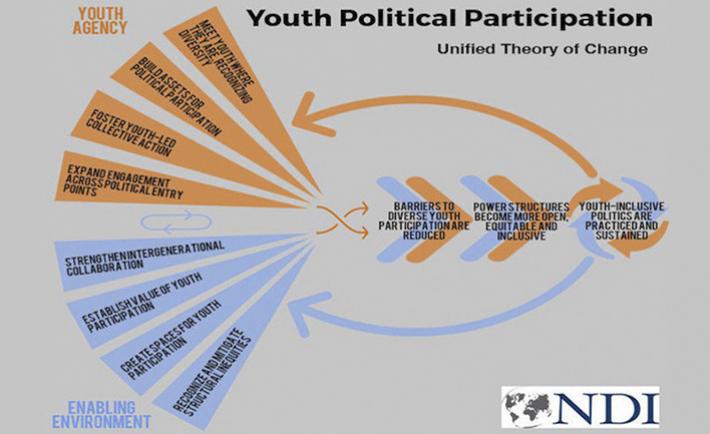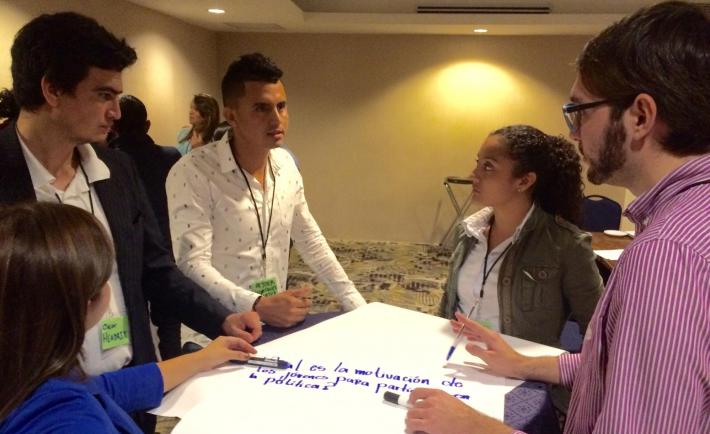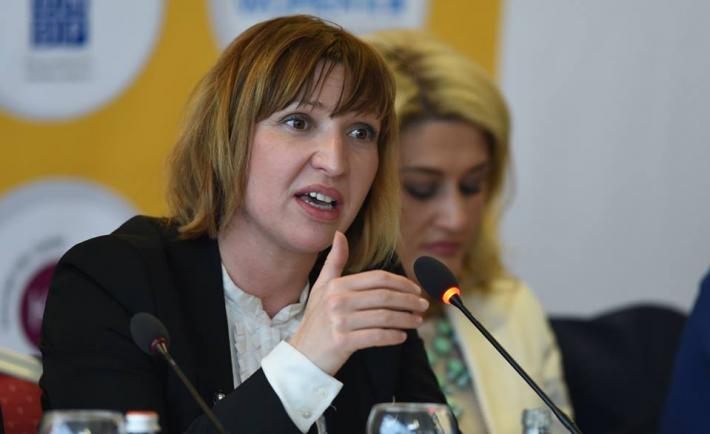Today’s youth are at a critical juncture. The current young generation - the largest in global history - is disproportionately affected by unemployment, insufficient access to education, violent conflict and a number of other challenges. Eager to play a role in changing their communities and nations for the better, many young people have become frustrated with political processes that seem out of reach, out of touch and ineffective, and have since turned to other ways to give back to their communities. To encourage youth to “opt-in” to the state, governments need to give them more than a seat at the table to address matters affecting their lives. Failure to do so may further widen the growing rift between youth and political institutions, and make youth more vulnerable to recruitment by extremist groups.
Progress toward youth-inclusive politics
Grounding Theory in Practice: Youth programs in Jordan and Kosovo
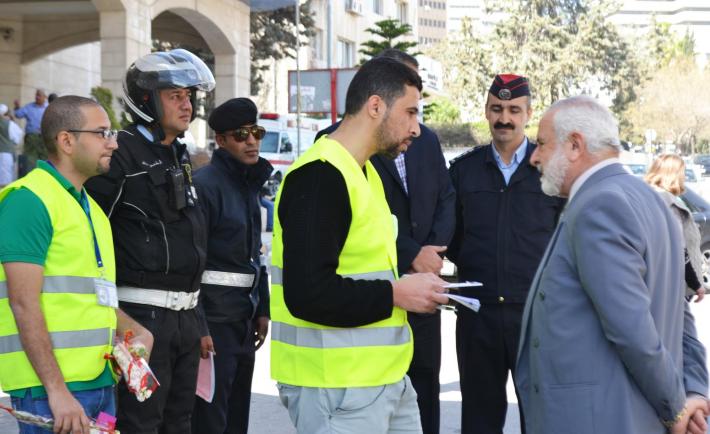
Usharek+ participants in Jordan launch their advocacy campaign with the goal of improving traffic safety.
NDI’s new theory of change unifies important elements of youth political participation programs and depicts how they can interplay to change practices of youth participation. This theory, which I blogged about last month, was not merely academic exercise from the “ivory tower.” It draws on discussions with young politically active women and men across Africa and Latin America, collaborative discussions with democracy and governance practitioners from around the world, and deep reviews of effective youth programs NDI is conducting in Jordan and Kosovo. The Jordan and Kosovo programs show how the theory of change can play out in practice.
How to help youth strengthen their participation and influence
Surging youth activism and leadership has the potential to change the world. Accordingly, young people are increasingly being recognized as indispensable agents for sustainable development and the source of a demographic dividend. But more work is necessary to support their active engagement and satisfy young people’s desire to have more than just a seat at the table. To help meet this need, NDI recently developed a unified theory of change, illustrated in the graphic above, which depicts the process of institutionalizing meaningful youth political participation.
Youth are driving change in Latin America
Twelve young Latin American political leaders and activists recently gathered in Guatemala for an NDI-led workshop on youth political participation. Conversations ranged from what motivates youth to get involved in politics, to how sociocultural norms about youth affect their work, and what tactics youth have used to elevate their political voices in their home countries of El Salvador, Colombia, Guatemala, Honduras, Nicaragua and Mexico. Amidst widespread myths about youth political apathy, these diverse young activists represent a generation that is motivated to build more inclusive, democratic societies.
Youth Want More Than a Seat at the Table
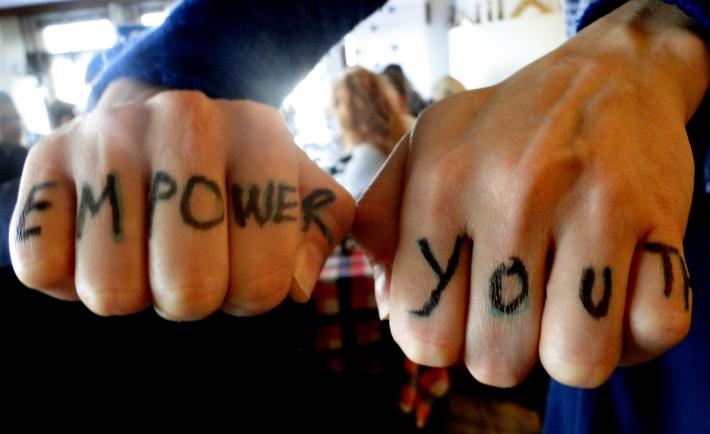
During an NDI workshop in Kosovo, a participant displays the message for a inter-ethnic advocacy campaign. Arta Qorri
International Youth Day 2016 comes at a time when the United Nations and other members of the international development community are recognizing youth as champions for sustainable development. This reflects an ongoing shift in perspectives from fearing the ‘youth bulge’ as a problem to be solved, to partnership with young women and men as leaders and a demographic dividend that can accelerate global progress. Today’s youth – the most connected, educated and open-minded generation the world has seen – have the power to foster innovative and transformative change.
Women Leaders Unite in Kosovo for Week of Women
More than 100 Kosovar women from all sectors of society traveled to Pristina last week for the fourth annual Week of Women (WoW). The weeklong event, supported by NDI, brings together Kosovar women to hone skills and techniques to help them become more effective leaders in their fields.



